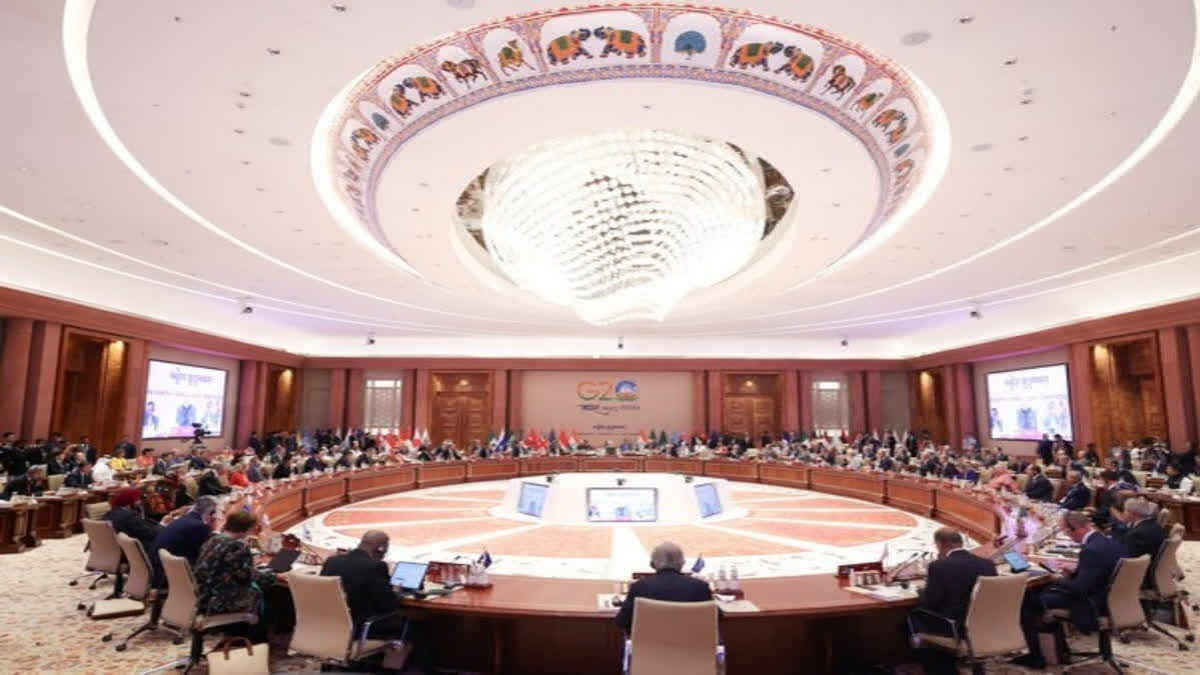New Delhi: Though India abstained from voting on a UN General Assembly (UNGA) resolution calling for an immediate humanitarian truce in the ongoing Israel-Hamas war, New Delhi’s ties with countries in West Asia are unlikely to be affected, experts say.
India was among the 45 nations that abstained from voting on the UNGA resolution titled “Protection of civilians and upholding legal and humanitarian obligations”. While 120 countries voted in favour of the resolution, 14 others, including the US and Israel, voted against it.
In the resolution, the UNGA also demanded that all parties “immediately and fully comply” with obligations under international humanitarian and human rights laws, “particularly regarding the protection of civilians and civilian objects”.
It also urged the protection of humanitarian personnel, persons hors de combat, and humanitarian facilities and assets, and to enable and facilitate humanitarian access for essential supplies and services to reach all civilians in need in the Gaza Strip.
Furthermore, the resolution called for the rescinding of the order by Israel, “the occupying power”, for Palestinian civilians, UN staff and humanitarian workers to evacuate all areas in the Gaza Strip north of Wadi Gaza and relocate to the south.
However, India abstained from voting on the resolution because it failed to condemn Palestinian militant group Hamas for its terrorist attack and the Assembly rejected an amendment supported by New Delhi that would have named the group.
This sparked speculations about whether this will affect India’s ties with West Asian nations. However, experts believe all such speculations are baseless. According to R Dayakar, former Indian Ambassador to Iraq and Jordan, who also served in the West Asia desk of the Ministry of External Affairs, India’s ties with West Asian nations will not be affected primarily for three reasons.
“One is that India took a principled position of not voting for or against a resolution that it saw as one-sided,” Dayakar told ETV Bharat. “India took a factual position that Hamas’s role in the sequence of events that led to the ongoing war should find mention in the resolution.”
India had backed an amendment to the resolution moved by Canada that named Hamas and condemned its October 7 attacks in Israel, but it failed to pass, getting only 88 votes, while there were 54 votes against it, with 23 abstentions. The draft amendment could not be adopted as it failed to get a two-thirds majority of members present and voting.
“The terror attacks in Israel on October 7 were shocking and deserve condemnation,” India’s Deputy Permanent Representative to the UN Yojna Patel said after the vote. “The world should not buy into any justification of terror acts. Let us keep aside differences, unite and adopt a zero-tolerance approach to terrorists.”
Also read: India abstains on UNGA resolution calling for humanitarian truce in Israel-Hamas conflict
According to Robinder Sachdev, president of the independent think tank ImagIndia, India’s abstention from the vote reflected New Delhi’s stated policy of zero tolerance for terrorism. “The West Asian nations are very well aware of India’s global stand on the issue of terrorism,” Sachdev said. “At the same time, they know India’s stand on the Palestine issue (which is a two-state solution to end the Israel-Palestine conflict).”
The second reason, according to Dayakar, why India-West Asia ties will not be affected is that even some Arab and other Muslim countries abstained from voting on the resolution. “Iraq and Tunisia, both Arab countries, abstained from voting,” Dayakar pointed out. “Iraq, as part of its independent foreign policy, maintains equidistance from both the US and Iran. But what is surprising is the abstention of Tunisia from the vote. Tunisia had, after all, once served as the headquarters of the Palestine Liberation Organisation.”
Dayakar said that the third reason why India-West Asia ties will not be hit is because India always takes a principled position by abstaining from voting on one-sided resolutions. “India tried to rectify the lack of balance in the one-sided resolution,” he said. “India supported the amendment to rectify the lack of balance which did not get the required two-thirds majority.”
Dayakar explained that this was not the first time that India had abstained from voting on resolutions on the Palestine issue. India had always abstained from voting in one-sided resolutions. S Samuel C Rajiv, Associate Fellow at the Manohar Parrikar Institute of Defence Studies and Analysis, said that India has maintained a consistent stand vis-a-vis the Israel-Palestine conflict in the UN.
“It has mostly voted in favour of UN resolutions on the Palestine issue, be it on Israeli settlement activities and two-state solution among others,” Rajiv said. “It is important to recognise the unique characteristics of the present conflict in Gaza, which Israel is fighting with Hamas, designated as a terrorist organisation by the US and the UK among others.”
He said that while India has condemned the Hamas terrorist attacks, it has also sent aid to Palestinians after the October 7 attacks and has called for respecting international humanitarian law, a clear reference towards Israel.
“India has given more than $30 million in aid to the Palestinians in the past five years,” Rajiv said. According to Sachdev, India’s abstention from voting on the resolution is in line with New Delhi’s foreign policy.
“Had the amendment mentioning Hamas been included in the resolution and India still abstained from voting, then only there could have been a very different reading of New Delhi’s foreign policy,” he said. So, has India done a favour to Israel by abstaining from voting on the resolution? “Not at all,” said Dayakar. “Remember, India abstained from voting. It could have done a favour to Israel only if it had voted against the resolution.”



